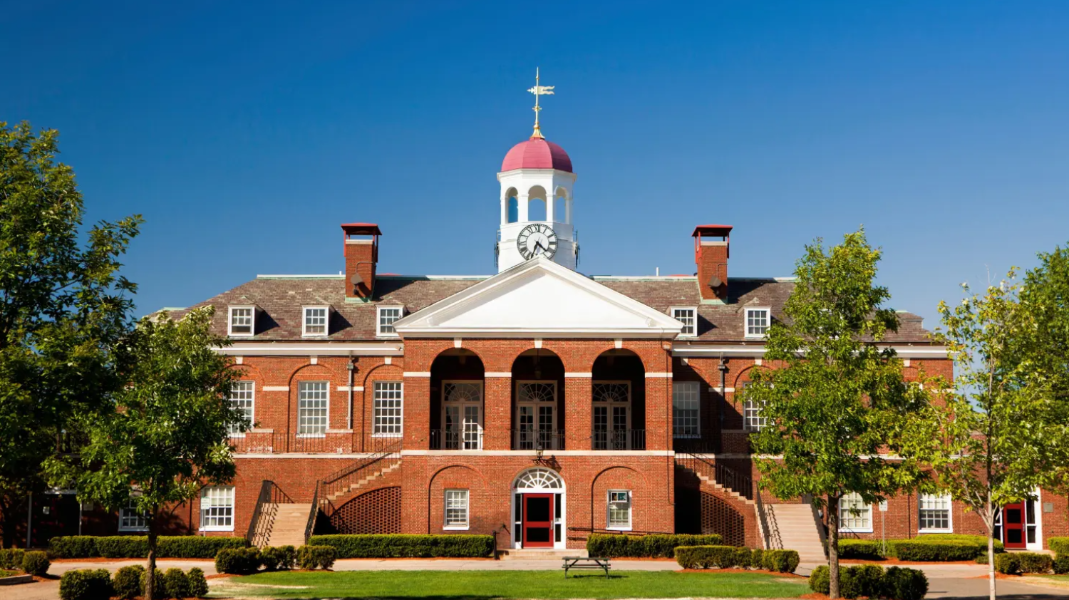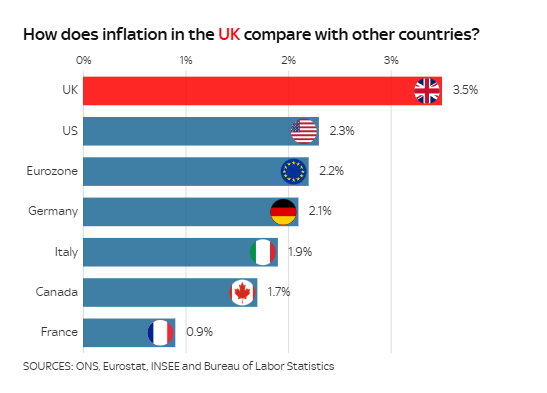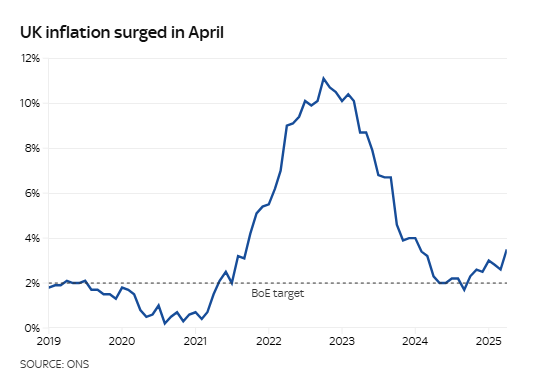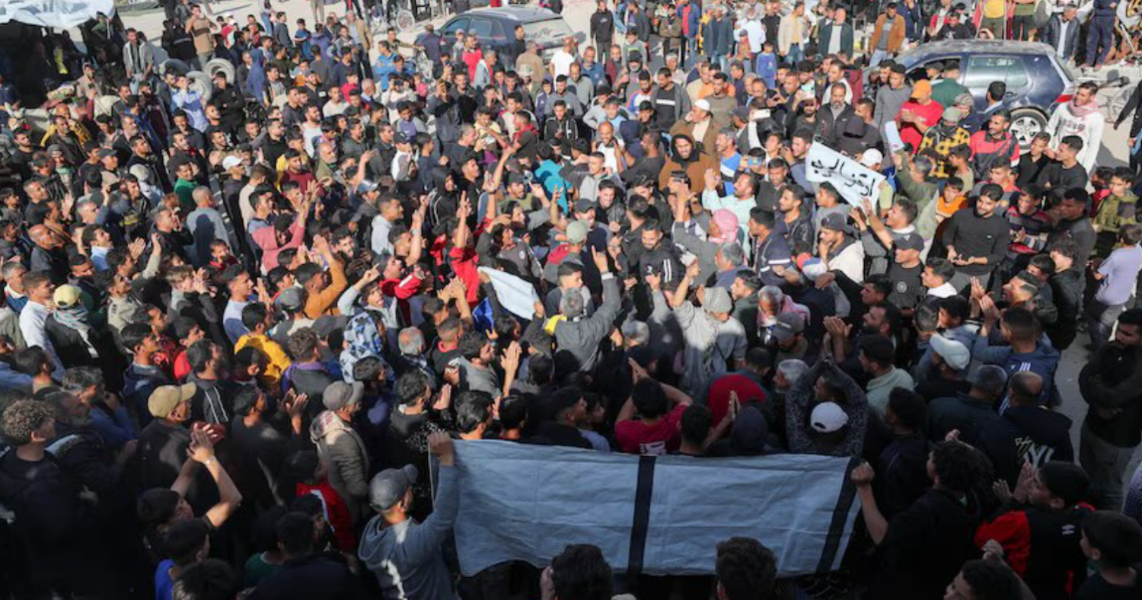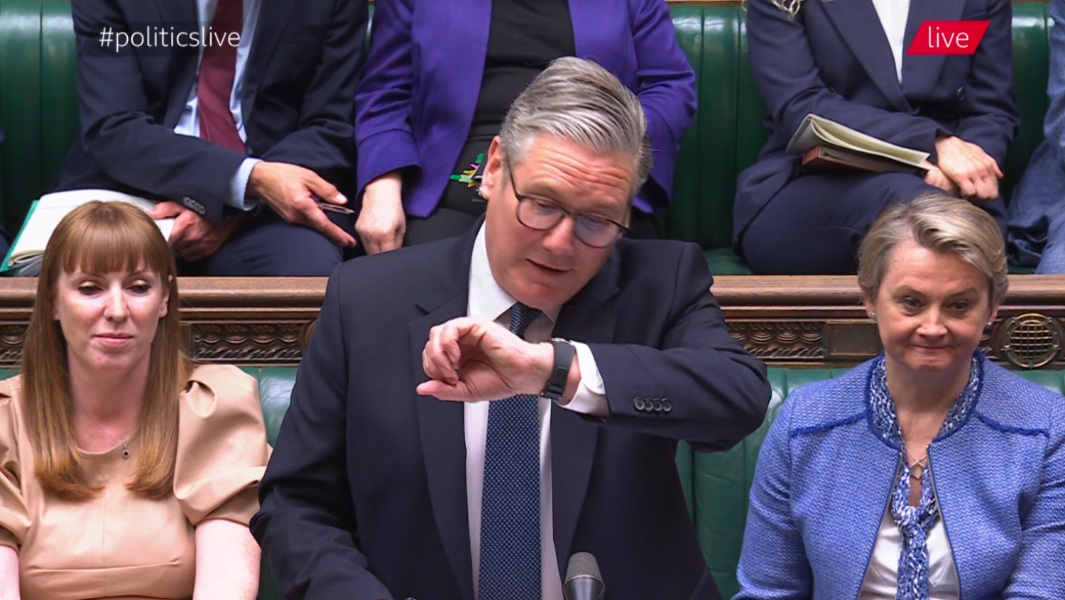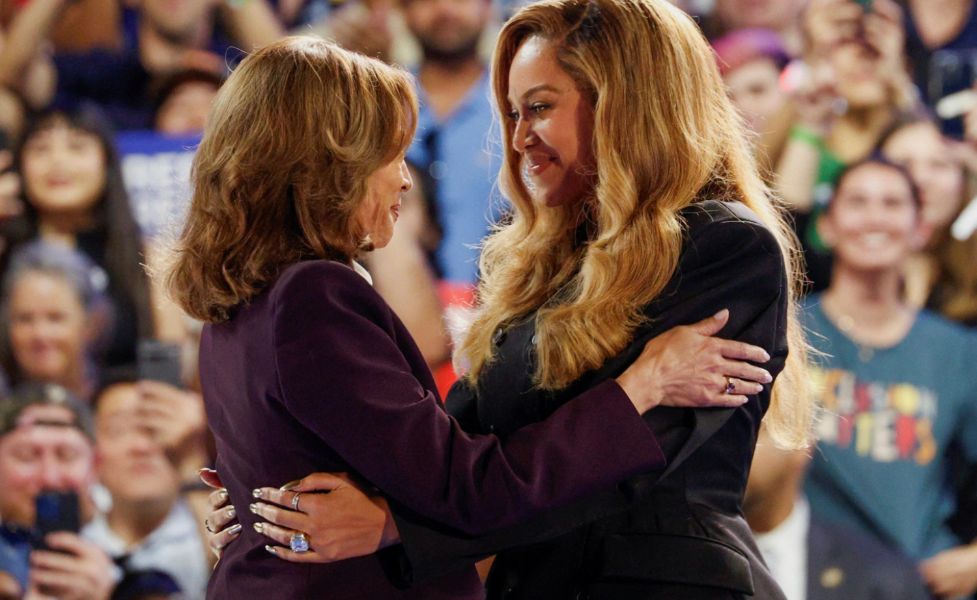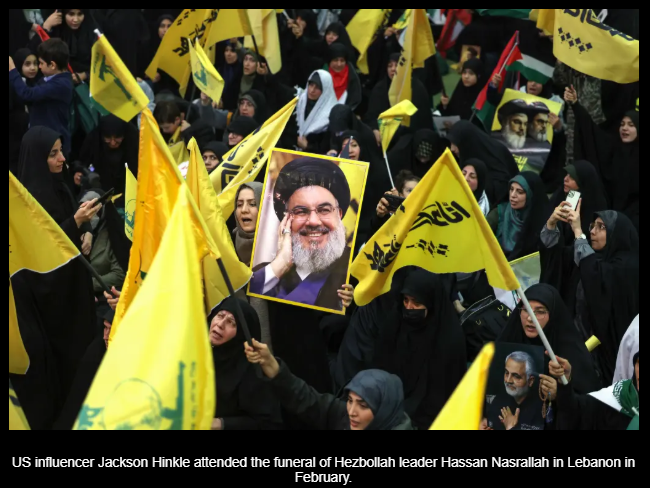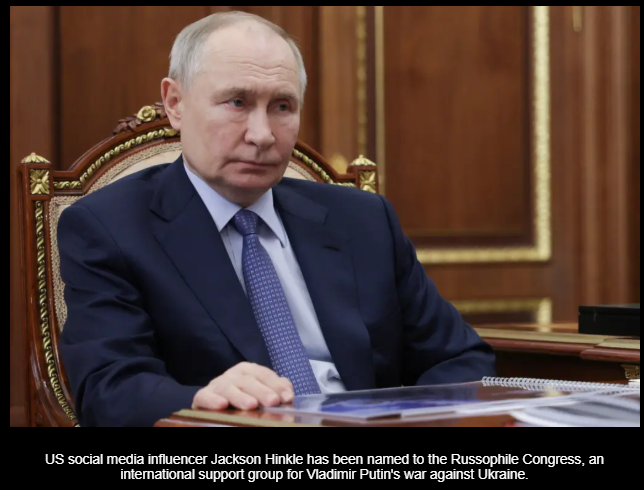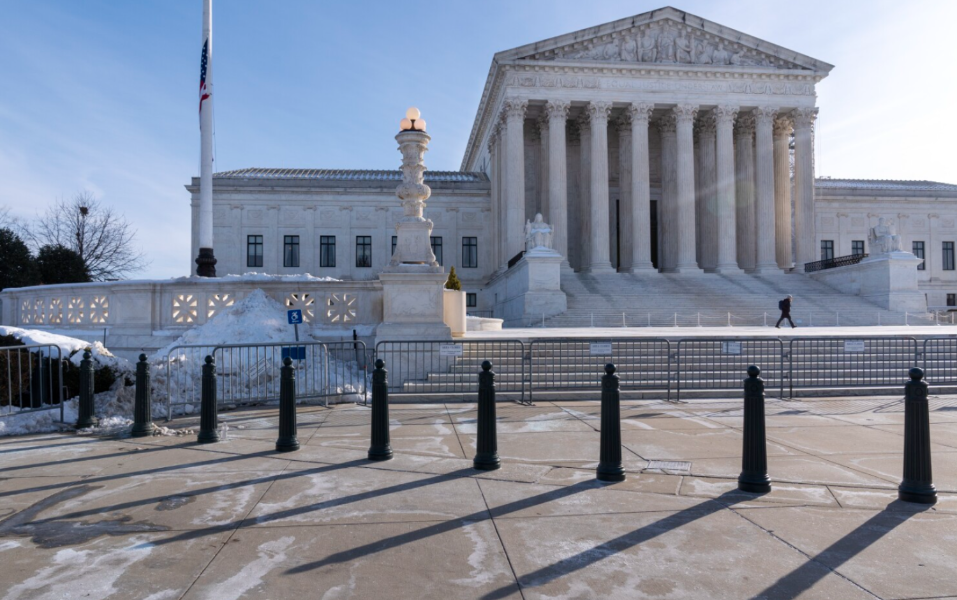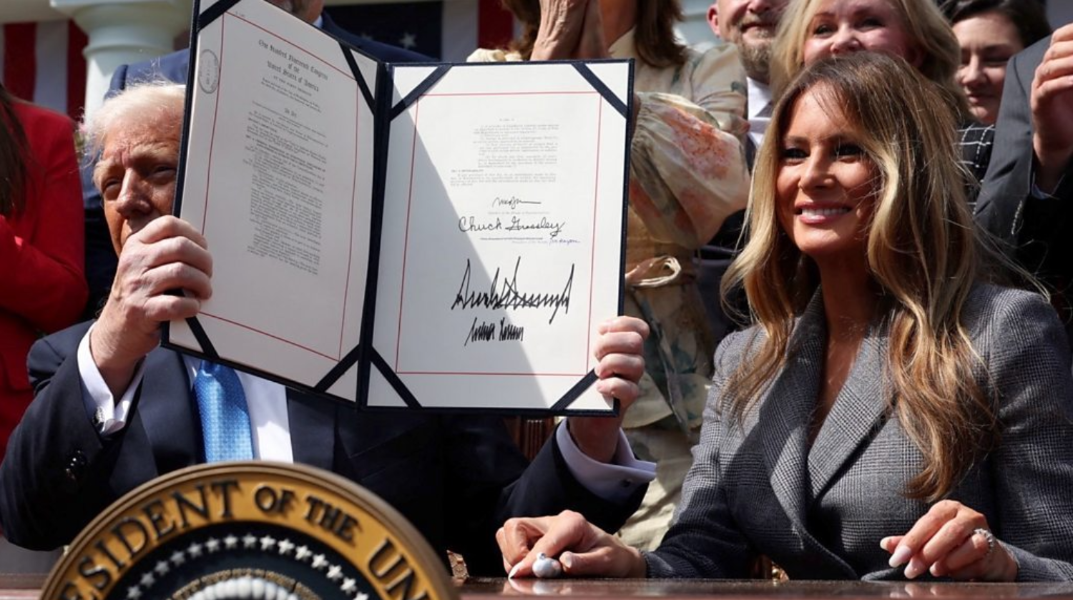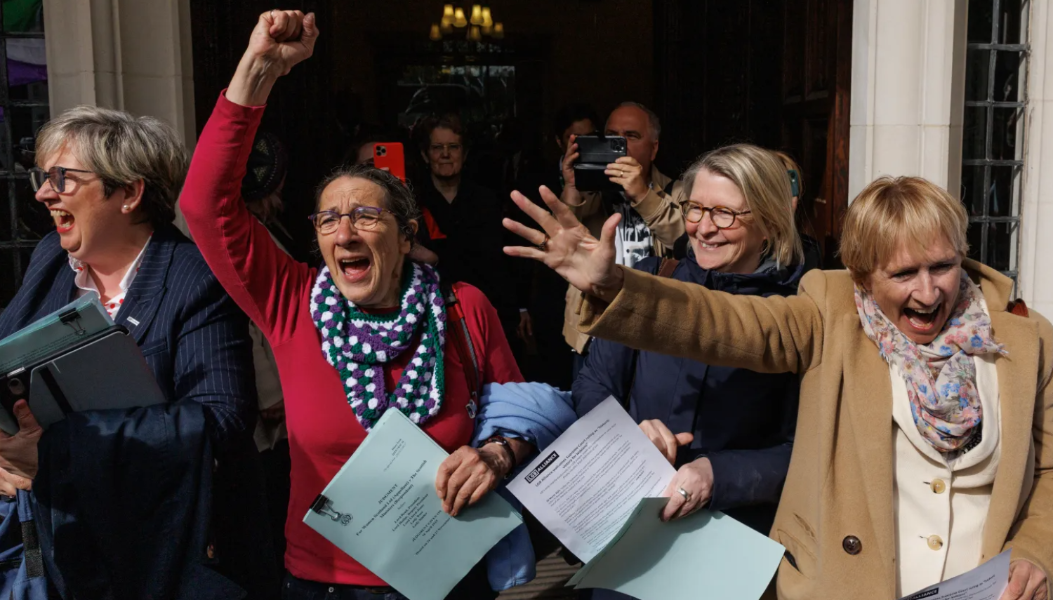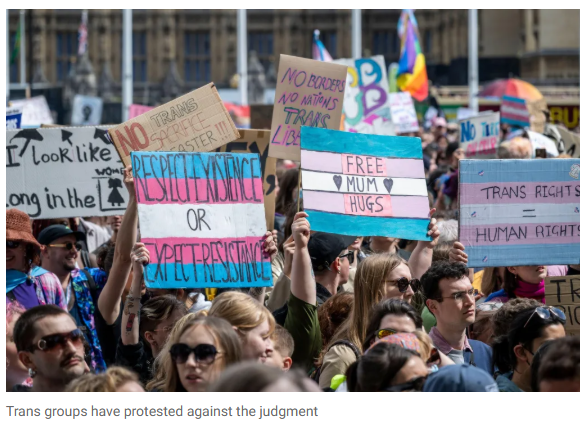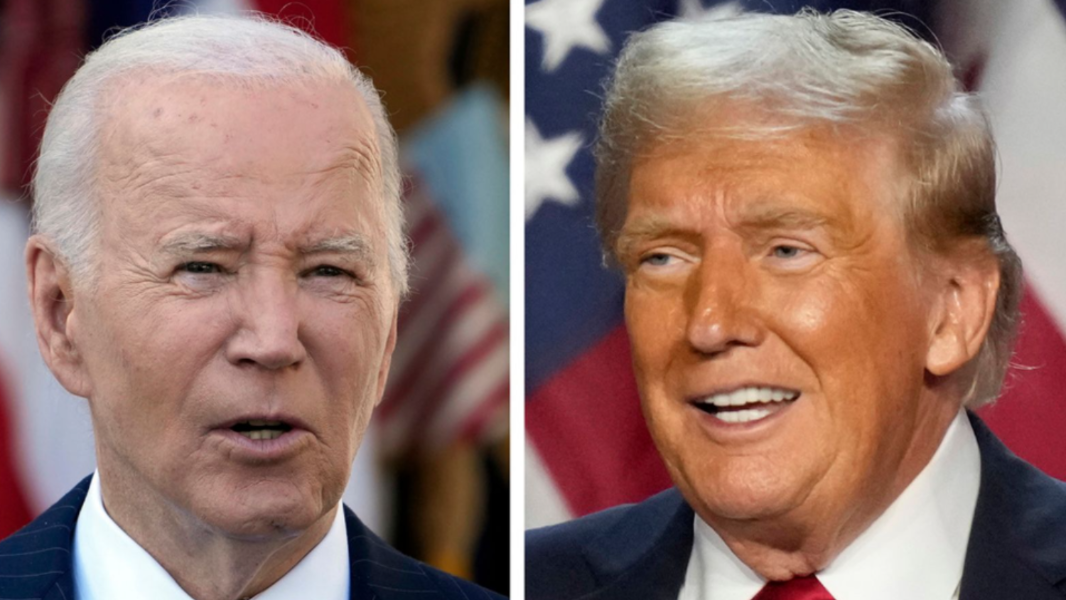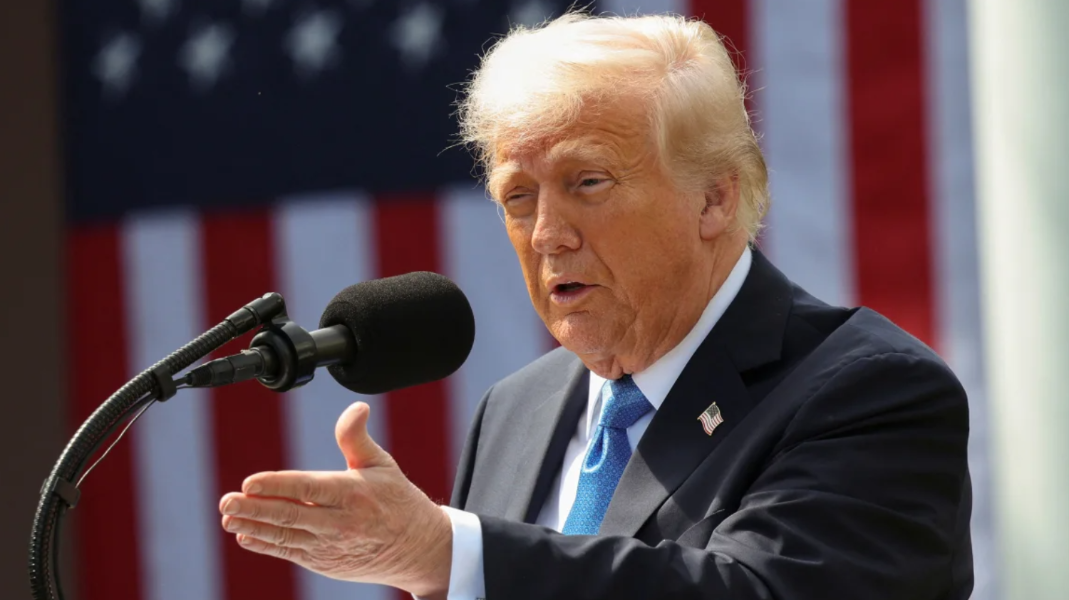-
Posts
10,734 -
Joined
-
Last visited
Content Type
Events
Forums
Downloads
Quizzes
Gallery
Blogs
Everything posted by Social Media
-
Rubio Sounds Alarm as Syria Teeters on the Edge of Renewed Chaos U.S. Secretary of State Marco Rubio has issued a stark warning that Syria could be mere weeks away from what he described as “potential collapse and a full-scale civil war of epic proportions,” as transitional authorities struggle to contain mounting violence and political instability in the wake of Bashar al-Assad’s ousting. Speaking at a Senate Foreign Relations Committee hearing, Rubio defended President Donald Trump’s controversial decision to lift long-standing U.S. sanctions on Syria just days before Trump met with Syria’s transitional leader, President Ahmed al-Sharaa. Sharaa, a former al-Qaeda commander, led the rebel forces that overthrew Assad in December and now heads a fragile and deeply divided interim government. According to Rubio, Trump’s rationale for lifting sanctions was grounded in pragmatism. “Nations in the region want to get aid in, want to start helping them. And they can't because they are afraid of our sanctions,” he explained. Trump’s move, while surprising to many, was aimed at removing barriers for international support and humanitarian assistance to flow into the devastated country. There has been no comment yet from Syrian officials, but Sharaa has publicly hailed the decision, calling it “a historic and courageous decision, which alleviates the suffering of the people, contributes to their rebirth and lays the foundations for stability in the region.” However, the picture on the ground remains dire. The U.S. initially imposed sanctions in response to atrocities committed by Assad's forces during Syria’s brutal 13-year civil war, which claimed over 600,000 lives and displaced more than 12 million people. The State Department had maintained that sanctions would only be lifted if key conditions were met, including the protection of ethnic and religious minorities. While Sharaa has pledged to uphold those protections, recent waves of sectarian violence have left hundreds dead and fueled widespread distrust. In March, nearly 900 civilians—predominantly members of Assad’s Alawite sect—were killed by pro-government loyalists in a bloody confrontation with security forces along Syria’s western coast. The loyalist forces were also responsible for the deaths of 450 civilians and 170 security personnel, according to a monitoring group. Then, in early May, more than 100 people reportedly died during fierce clashes involving Druze gunmen, the new security forces, and allied Sunni Islamist fighters in and around Damascus and the southern Suweida province. These incidents have only intensified the fears of minority communities, many of whom are uneasy under a transitional government dominated by Hayat Tahrir al-Sham (HTS), Sharaa’s Sunni Islamist faction and a former al-Qaeda affiliate still labeled a terrorist organization by the United Nations, the United States, the European Union, and the United Kingdom. Despite being officially designated a “specially designated global terrorist” by the U.S., Sharaa appears to have gained political traction. In December, the Biden administration announced the withdrawal of the $10 million bounty previously offered for his capture. Trump, during a summit of Gulf leaders in Saudi Arabia last week, met with Sharaa and offered unexpectedly warm praise. “He’s a young, attractive guy,” Trump told reporters. “Tough guy. Strong past. Very strong past. Fighter. He’s got a real shot at pulling it [Syria] together. It’s a torn-up country.” Rubio, however, remains cautiously optimistic yet pragmatic. “The bad news is that the transitional authority figures... didn't pass their background check with the FBI,” he quipped. “But on the flip side of it is, if we engage them, it may work out, it may not work out. If we did not engage them it was guaranteed to not work out.” His assessment is bleak: “It is our assessment that, frankly, the transitional authority, given the challenges they're facing, are maybe weeks, not many months, away from potential collapse and a full-scale civil war of epic proportions, basically the country splitting up.” He added that minority groups are still “dealing with deep internal distrust... because Assad deliberately pitted these groups against each other.” In a significant development, European Union foreign ministers have followed the U.S. lead, agreeing to lift economic sanctions on Syria. “We want to help the Syrian people rebuild a new, inclusive and peaceful Syria,” wrote EU foreign policy chief Kaja Kallas on X. “The EU has always stood by Syrians throughout the last 14 years—and will keep doing so.” Syria’s foreign ministry welcomed the decision, calling it “the beginning of a new chapter in Syrian-European relations built on shared prosperity and mutual respect.” Still, the road ahead remains treacherous, and whether the international community’s gamble on Sharaa will stabilize Syria—or plunge it back into chaos—remains uncertain. Adapted by ASEAN Now from BBC 2025-05-22
-
Harvard Under Fire: Allegations of Ties to Chinese Military and Human Rights Abusers Stir Controversy Harvard University is facing intense scrutiny from Republican lawmakers who accuse the institution of collaborating with the Chinese Communist Party (CCP), providing training to sanctioned paramilitary groups, and engaging in research partnerships that could jeopardize U.S. national security. In a sharply worded letter addressed to Harvard and signed by Representatives John Moolenaar, Tim Walberg, and Elise Stefanik, the university is charged with working alongside Chinese military-linked universities and researchers associated with oppressive regimes, including Iran. “Harvard trained members of a sanctioned Chinese paramilitary group responsible for genocide, and its researchers partnered with Chinese military universities on DoD-funded research and worked with researchers funded by the Iranian regime,” said John Moolenaar, chairman of the House select committee on the Chinese Communist Party. “These are not isolated incidents — they represent a disturbing pattern that puts US national security at risk.” This marks a new escalation in Republican attacks on Harvard, already targeted by the Trump administration over accusations of “fostering antisemitism” amid rising pro-Palestinian activism on campus. The new letter revives longstanding anxieties about Western academic engagement with China, an issue that has also raised alarms in the United Kingdom and elsewhere. At the heart of the allegations is Harvard’s purported relationship with the Xinjiang Production and Construction Corps (XPCC), a quasi-military Chinese organization sanctioned by the U.S. in 2020 due to its alleged role in human rights abuses against the Uighur population in Xinjiang. According to the Republican lawmakers, Harvard hosted XPCC delegates for training programs and conferences as recently as last year. The letter claims that Harvard sought to obscure its involvement with XPCC, ceasing to mention the group in public statements and even blurring out names in official photographs. In contrast, Chinese media reports openly acknowledged XPCC representatives’ participation. Beyond XPCC, the lawmakers allege Harvard collaborated with Chinese institutions connected to the “Seven Sons of National Defence,” a group of military-run universities tied to China’s Ministry of Defense. These institutions are known for conducting research with potential military applications, raising the specter of “dual-use” science—research with both civilian and military potential—being shared with a strategic rival. The letter also highlights Harvard’s joint work with scientists whose research received funding from the Iranian regime. “We have found several instances in which Harvard University aided and even collaborated with the CCP — including helping Chinese researchers on military projects funded by the Iranian government,” Walberg said. “This is unacceptable.” Further accusations involve research into organ transplant technologies conducted in partnership with Chinese scientists. The Chinese government has long faced international condemnation over allegations that organs have been harvested from executed prisoners, including ethnic and religious minorities. While no direct evidence from the Harvard collaborations has been disclosed, the associations alone have prompted ethical concerns. Harvard declined to comment on the allegations when approached by its student newspaper, The Crimson, although it confirmed receipt of the lawmakers’ letter. The congressional report raises the possibility of re-evaluating Harvard’s tax-exempt status, suggesting that activities which appear to aid sanctioned foreign entities could be incompatible with its nonprofit mission. “Assisting known, sanctioned paramilitary human rights abusers in developing policy and advancing their foreign military capabilities may undermine Harvard’s non-profit mission,” the letter stated. As the debate unfolds, Harvard finds itself caught in the crossfire of larger geopolitical tensions and domestic political battles. The outcome may have far-reaching implications not only for the university’s funding and reputation, but also for how American academic institutions engage with foreign powers going forward. Related Topics: Harvard Acknowledges Deep Antisemitism Crisis Following Scathing Internal Report Harvard’s Shift: How Islamist Influence Took Root on Campus Behind the Curtain: Harvard’s Quiet Courtship with Trump Before Its Bold Rejection Harvard Becomes Resistance HQ in Trump’s Campus Culture War Adapted by ASEAN Now from The Times 2025-05-22
-
Equality Watchdog: Birth Certificates May Be Requested to Protect Single-Sex Services Hospitals, gyms, and sports centres may soon be permitted to request individuals' birth certificates to confirm their biological sex in order to uphold the integrity of single-sex services, according to new draft guidance released by the Equality and Human Rights Commission (EHRC). The proposal follows a recent Supreme Court ruling that legally defines “woman” based strictly on biological sex, prompting the EHRC to revise its interpretation of the Equality Act and open a public consultation on the matter. The draft guidance clarifies that it would be lawful for organisations to ask someone to provide a birth certificate or Gender Recognition Certificate (GRC) when it is “necessary and proportionate” to determine eligibility for single-sex services. However, the EHRC stressed that such requests must be handled with sensitivity, as asking about birth sex in a disrespectful or public manner could amount to discrimination or harassment. Baroness Falkner of Margravine, chairwoman of the EHRC, emphasized the importance of clear and accurate legal guidance. “Since the judgment was handed down, the demand for authoritative guidance has been obvious. It’s our job to provide that,” she said. “It is important that our code is both an accurate interpretation of the law and clear to those who use it. So we want to hear views on the clarity of these updates and urge all interested parties to respond to the consultation over the next six weeks. We will consider every response carefully and amend the draft code where necessary.” The guidance proposes that the legal definition of sex be updated to refer only to biological sex recorded at birth, thereby excluding individuals who have legally changed their gender through a GRC. Consequently, services that admit transgender individuals of the opposite biological sex could not describe themselves as “single-sex.” In situations where biological sex is deemed essential — for example, in spaces where women may be undressed, feel vulnerable, or face limited alternatives — service providers may request documentation to verify eligibility. The EHRC warned, however, that if such information is shared without consent, it could constitute a criminal offence. The draft also states that transgender individuals may be excluded from services even if they are biologically aligned with the intended user group if their presence could “cause alarm or distress to other service users.” The regulator acknowledged that such policies are likely to disadvantage trans people compared to non-trans people but said that the legal balancing of rights may still justify such exclusions in certain contexts. “Where services are provided on a single-sex basis, that needs to be done in a way which is consistent with the law,” Falkner said. “We know that there are strongly held views across our society, both about how the law should be interpreted and whether it reflects the right balance between those rights.” On the subject of sport, the EHRC guidance allows for trans individuals to be excluded from gender-affected sporting events if their participation could confer an unfair advantage or pose safety risks. It also urges organisers to seek less intrusive ways to accommodate trans people while still protecting the single-sex nature of the activity. Maya Forstater, co-founder and chief executive of the charity Sex Matters, welcomed the draft, saying it “reflects the law as clarified by the Supreme Court, so there can be no more excuses for failing to follow it.” Falkner concluded by encouraging engagement with the consultation: “This is a complex area of law, which bears on the rights of people with the protected characteristics of sex, sexual orientation and gender reassignment. So if everybody’s rights are to be protected — as the Supreme Court confirmed the law intends — service providers and their legal advisers need help to navigate these challenges. Please tell us if you think it could be clearer or more helpful. That way, whether you’re a shop owner or the chair of a local sports club; the manager of a hotel or a hospital; an HR professional or a solicitor — you will have guidance to follow so you can be confident that you’re upholding the law.” Adapted by ASEAN Now from The Times 2025-05-22
-
Driverless Cars Edge Closer in UK, But Uber Says It's Already Set to Roll Despite the UK government pushing back the expected rollout of fully autonomous vehicles to late 2027, Uber says it’s already prepared to launch driverless taxi services. While limited self-driving capabilities are currently allowed under UK law—with a human driver still legally responsible—companies like Uber argue that they are ready to take the leap as soon as regulations catch up. Uber's senior vice president of mobility, Andrew Macdonald, joined a test ride in an autonomous car in central London using technology developed by UK-based AI company Wayve. During the ride, Macdonald made it clear: “We're ready to launch robotaxis in the UK as soon as the regulatory environment is ready for us.” The car, a Ford Mach-E fitted with Wayve's self-driving system, navigated the busy streets of London with apparent ease. It used radar, seven cameras, and an AI computer housed in the boot to interpret and respond to road conditions in real time. Macdonald, alongside a BBC journalist on the ride, watched the vehicle smoothly handle heavy traffic, pedestrians, delivery bikes, and even temporary traffic lights without any intervention from the safety driver, who never touched the controls. While Uber already operates robotaxis in places like the US, China, the UAE, and Singapore, the UK has been more cautious. The Department for Transport now says that self-driving vehicle legislation will likely be ready in the second half of 2027. However, they’re also exploring pilot programs and short-term trials to prepare the ground. Macdonald refuted the idea that the UK is lagging behind, explaining that the US and China are ahead largely because the technology was first developed there. He also highlighted how robotaxis are already proving their value in American cities, operating up to 20 hours a day and offering the same fare rates as traditional Uber rides. Passengers can choose a robotaxi option in the app if one is available. Still, widespread adoption may face hurdles—not least public unease. A 2024 YouGov poll found that 37% of Britons would feel "very unsafe" riding in a driverless car. Macdonald believes this fear quickly fades. “It becomes the new normal,” he said, noting how users typically adapt after their first experience. Safety remains a key concern, however. Although studies in the US suggest autonomous vehicles are generally less accident-prone than human drivers, high-profile mishaps have drawn attention. In Arizona, one man reported being trapped inside a robotaxi as it drove in circles at an airport carpark. In San Francisco, General Motors paused its Cruise driverless taxi service due to safety concerns. “The reality is that one accident is too many,” Macdonald acknowledged. “That said, with EV [electric vehicles], human drivers… we operate in the real world and stuff happens.” In the UK, questions still linger around liability, insurance, and data transparency in the event of an accident. Tom Leggett of Thatcham Research emphasized the importance of a “safety-led” approach and ensuring relevant data is accessible to insurers and investigators. Beyond safety and logistics, there's also concern about the broader societal impact. Andy Prendergast, national secretary for the GMB union, warned of the “significant social implications” of driverless taxis, especially the risk of job losses for professional drivers. Yet Uber’s Macdonald remains optimistic, pointing to a generational shift already underway. “I’ve got young kids,” he said. “Do I think my daughters will necessarily get their drivers licences when they turn 16? No – I think the world is changing a lot.” The UK government believes that if implemented responsibly, self-driving technology could generate up to £42 billion and create 38,000 jobs by 2035. Whether the public is ready—or the legal groundwork laid—remains to be seen. Adapted by ASEAN Now from BBC 2025-05-22
-
UK Inflation Spikes to 3.5% After April’s Surge in Household Bills UK inflation jumped to 3.5% in April, the highest rate since January 2024, driven largely by widespread hikes in essential household bills. The Office for National Statistics (ONS) confirmed the increase, up sharply from March’s rate of 2.6%, catching many economists off guard who had predicted a smaller rise to 3.3%. The ONS attributed the spike to what many are calling an "awful April" for consumers. “Significant increases in household bills” were the key factor, according to the report. Energy prices rose by 6.4% under the government’s energy price cap, council tax bills increased by approximately 5%, and water and sewerage costs saw a staggering 26.1% surge. This last figure marks the steepest rise in water bills since February 1988, just before the industry was privatised. Additionally, broadband, mobile, and TV licence fees all saw increases, compounding the pressure on UK households already stretched by years of high living costs. The renewed inflationary pressure is now raising serious questions about the timing of potential interest rate cuts by the Bank of England. The consumer prices index, a key measure used to monitor inflation, plays a major role in determining the Bank of England’s monetary policy. Since December 2021, the Bank aggressively raised interest rates to contain inflation during the early days of the cost-of-living crisis. However, as inflation eased, it implemented four cuts since August last year. Prior to the latest ONS data, financial markets had priced in two more rate cuts for this year, though none were expected at the next Bank meeting in mid-June. Following the unexpected inflation jump, mortgage brokers have warned that mortgage rates will “edge upwards” in the coming weeks. Hopes of an interest rate cut next month have all but vanished. “This increase is certainly going to stall the recent mortgage rate improvements, and with inflation due to stay above 3% for the rest of the year it may be too much to expect further base rate cuts in 2025,” said Justin Moy, managing director at EHF Mortgages, in comments to Newspage. Craig Fish, director at Lodestone Mortgages and Protection, echoed the sentiment. “This will hit mortgage borrowers hard, especially those coming off fixed rates or looking to buy,” he said, noting that swap rates—used by banks to set mortgage pricing—are expected to rise in response to the inflation figure. The UK now holds one of the highest inflation rates among G7 countries. In April, inflation in Canada, the US, France, Italy, and Germany all remained below the UK’s 3.5%. The Eurozone, by contrast, recorded an inflation rate of just 2.2%. Only Japan, which saw prices rise at 3.6% last month, appears to be on a similar trajectory, though its April data has not yet been published. Business leaders are also sounding the alarm. Stuart Morrison, research manager at the British Chambers of Commerce, warned of more price hikes to come. “Businesses are facing a perfect storm of cost pressures, which is fuelling inflation alongside rising household bills,” he said. “While April’s jump was expected, the scale, to 3.5%, is concerning.” He added that additional costs such as national insurance increases for employers, minimum wage rises, and global tariffs are likely to push prices even higher. “Our research shows 55% of businesses are expecting to put up prices in the coming months,” Morrison said. “Firms urgently need to see a clear tax roadmap identifying when the burdens of national insurance and business rates will ease,” he added. “Upcoming strategies on industry, trade and infrastructure must live up to business expectations and help drive investment.” As both consumers and businesses brace for more financial strain, April’s inflation data serves as a stark reminder that the UK’s economic recovery from the cost-of-living crisis may be more fragile than hoped. Adapted by ASEAN Now from Sky News 2025-05-22
-
Protests in Southern Gaza Challenge Hamas Amid Rising Discontent For the third consecutive day, thousands of Palestinians in southern Gaza have taken to the streets to protest against Hamas, in a rare and dangerous display of public dissent against the ruling armed group. Footage shared on social media shows crowds chanting loudly, “Out! Out! Out! All of Hamas, out!” in an unmistakable call for the group’s removal from power. Activists say the movement began with young people taking to the streets on Monday and rapidly grew as others joined while waiting for meals from community kitchens, still holding their cooking pots. The spontaneous nature of the protest reflects a deepening anger among the public, triggered in part by the resurfacing of comments made by senior Hamas official Sami Abu Zuhri. In a podcast that originally aired in March, Zuhri declared the war with Israel to be “eternal,” and said, “We will rebuild the houses and produce dozens more babies for each martyr.” That statement struck a nerve. In Khan Younis, protestors directed their fury at Hamas leaders, accusing them of exploiting civilian suffering. “To those with Hamas, be aware the people of Gaza will dig your grave,” one demonstrator said, while another accused Hamas of trading “blood for a dollar.” While smaller protests have occurred in northern Gaza in recent months, Hamas’s dominance in the southern region has largely kept opposition in check—until now. The increasing unrest appears to signal a shift in public willingness to challenge the group despite the risks. Those risks are stark. In March, 22-year-old Oday a-Rubai was abducted and tortured to death by armed gunmen after participating in anti-Hamas demonstrations in Gaza City. Other reports allege that dissenters have been beaten, shot, or even killed for speaking out against the group. Still, the protests have not been without resistance. Alaa, a protester, recounted a tense moment as demonstrators neared Nasser hospital. “There was one man who wanted to pull out his gun, but his friend stopped him,” Alaa said. “They couldn’t do anything because they were outnumbered by the number of protesters.” Moumen al-Natour, a lawyer, former political prisoner, and co-founder of the anti-Hamas protest movement We Want to Live, offered a blunt explanation for the growing unrest. “The fatigue, effort and cost of displacement is pushing people to revolt against Hamas who refuse to surrender and hand over their weapons,” he said. The ongoing demonstrations suggest a growing resolve among Gaza’s civilians to speak out, despite the danger. As hardship deepens and hopes for a resolution remain distant, the voices challenging Hamas’s rule are becoming harder to silence. Related Topics: Abbas Condemns Hamas in Blistering Speech, Demands Hostage Release and Gaza Control Gaza: Hamas releases statement labelling the demonstrators “collaborators” and “traitors” Adapted by ASEAN Now from BBC 2025-05-22
-
Starmer Reverses Course on Winter Fuel Payments Amid Backbench Pressure Prime Minister Sir Keir Starmer has announced a significant policy reversal, pledging to extend eligibility for winter fuel payments to more pensioners just weeks after his government controversially slashed the benefit for millions. The initial decision, made in one of the Labour government’s earliest actions, stripped winter fuel payments—worth up to £300 annually—from around nine million pensioners. The move quickly ignited discontent among Labour’s own ranks and proved to be a contentious issue during recent local election campaigns. Candidates reported that voters repeatedly raised the cutback during doorstep conversations, reflecting widespread concern about the policy’s impact on the elderly during a time of economic strain. Under mounting pressure from his party’s backbenchers, Starmer sought to ease tensions and address the backlash during Prime Minister’s Questions on Wednesday. Responding to Labour MP Sarah Owen, who asked what support the government would offer to pensioners facing the cost of living crisis, Starmer committed to broadening the scope of the winter fuel payment. “We had to stabilise the economy with tough decisions but the right decisions,” Starmer said. “Because of those decisions the economy is going to improve—those growth figures last year, the highest growth in the G7, interest rates cuts four in a row, three trade deals. But I recognise people are still feeling the pressure of the cost of living crisis, including pensioners, and as the economy improves we want to make sure people feel those improvements.” Starmer continued: “That is why we wanted to ensure, as we go forward, more pensioners are eligible for winter fuel payment. As you would expect, Mr Speaker, we will only make decisions we can afford. That is why we will look at that as part of a fiscal event.” Kemi Badenoch, the leader of the opposition, called Starmer’s shift in stance “extraordinary,” criticising the abrupt change as a sign of inconsistency in leadership. The climbdown comes after a private meeting between the prime minister and backbench Labour MPs earlier this week, during which the policy was directly challenged. Though Starmer defended the broader strategy of benefit reform during the meeting—referring to it as a “Labour cause”—the pressure clearly influenced his decision to re-evaluate the winter fuel payment. Reports indicate that ministers are now examining the possibility of raising the income threshold under which pensioners qualify for the payment. The current threshold stands at £11,500, a figure many MPs and campaigners have argued is out of step with the realities of rising living costs. Starmer’s reversal marks a rare early concession by the new Labour government, underscoring both the political risks of austerity-era reforms and the continuing economic pressures faced by pensioners across the UK. Adapted by ASEAN Now from The Times 2025-05-22
-

Joe Biden Diagnosed with Aggressive Cancer
Social Media replied to Social Media's topic in World News
New Topic: -
UN Warns of Growing Crisis as Aid Fails to Reach Gazans Despite Border Crossings Despite a recent breakthrough that saw aid trucks finally entering Gaza following an 11-week blockade, the United Nations has confirmed that no humanitarian assistance has yet been distributed to those in need. On Tuesday, Israeli authorities reported that 93 trucks had entered the Gaza Strip via the Kerem Shalom crossing, carrying vital supplies such as flour, baby formula, medical equipment, and pharmaceutical drugs. However, UN officials stated that the aid, though technically inside Gaza, had not reached the people it was intended to help. The lack of distribution, according to UN spokesperson Stéphane Dujarric, stems from the complicated logistics imposed by Israeli protocols. “Israel required the UN to offload supplies on the Palestinian side of the Kerem Shalom crossing, and reload them separately once they secure our teams' access from inside the Gaza Strip,” he explained. Dujarric acknowledged the arrival of the supplies as a step forward, but warned, “It’s a drop in the ocean of what’s needed.” The international community has responded with mounting criticism over Israel’s ongoing military actions and its delay in facilitating humanitarian aid. The UK government has suspended trade talks with Israel, denouncing its military escalation as "morally unjustifiable." Prime Minister Sir Keir Starmer called the situation "intolerable." Meanwhile, European Union foreign policy chief Kaja Kallas announced that the EU would be reviewing its existing trade agreements with Israel due to its conduct in Gaza. Concerns over the humanitarian toll continue to grow. The UN’s humanitarian chief Tom Fletcher issued a stark warning during an interview with the BBC, stating, “There are 14,000 babies that will die in the next 48 hours unless we can reach them.” That was 24 hours ago. Fletcher noted that strong teams are working on the ground in medical centers and schools, but did not elaborate on how the number was calculated. When questioned, the UN Office for the Coordination of Humanitarian Affairs (UNOCHA) offered clarification, saying the figure refers to 14,000 babies suffering from severe acute malnutrition who require immediate aid, citing data from the Integrated Food Security Phase Classification (IPC). The IPC estimates that between April 2025 and March 2026, around 14,100 cases of acute malnutrition among children aged six to 59 months are expected in Gaza, but stressed that this figure represents a projection over a year—not within a 48-hour window. In the United States, Secretary of State Marco Rubio expressed cautious optimism during a Senate Foreign Relations Committee hearing. “We are pleased to see that aid is starting to flow in again,” he said. Responding to a concern raised by a Democrat senator regarding the insufficiency of aid volumes, Rubio acknowledged, “I understand your point that it’s not in sufficient amounts, but we were pleased to see that decision was made.” Pressure is also mounting from other global leaders. The UK, France, and Canada jointly urged the Israeli government on Monday to “stop its military operations” and to “immediately allow humanitarian aid to enter Gaza.” In conjunction with its trade suspension, the UK has also imposed sanctions on several prominent Israeli settlers and groups linked to settlement activity. The current humanitarian crisis follows Israel’s military campaign in Gaza, launched in retaliation for the October 7, 2023, cross-border attack by Hamas, which killed around 1,200 people and led to 251 hostages being taken. As the conflict continues, the world watches with increasing alarm as aid remains stalled and the suffering deepens in Gaza. Adapted by ASEAN Now from BBC 2025-05-21
-
Trump Accuses Harris of Paying Beyoncé for Illegal Endorsement, Demands Federal Probe President Donald Trump has leveled fresh accusations against Kamala Harris, claiming she paid pop superstar Beyoncé $11 million in exchange for an endorsement during the 2024 election campaign—an act he calls “illegal” and worthy of federal investigation. In a series of posts on his Truth Social platform, Trump condemned what he described as a corrupt use of celebrity power by the then-vice president to boost her presidential bid. “According to news reports, Beyoncé was paid $11,000,000 to walk onto a stage, quickly ENDORSE KAMALA, and walk off to loud booing for never having performed, NOT EVEN ONE SONG!” Trump wrote. “This is an illegal election scam at the highest level! It is an illegal campaign contribution! Bruce Springsteen, Oprah, Bono and, perhaps, many others, have a lot of explaining to do!!!” Trump’s accusations stem from a rally in Houston, where Beyoncé appeared on stage with Harris. While the singer did not perform—unlike in 2016 when she sang at a campaign rally for Hillary Clinton in Cleveland—Trump insists the appearance itself constituted an illicit campaign contribution disguised as entertainment. “Candidates aren’t allowed to pay for ENDORSEMENTS, which is what Kamala did, under the guise of paying for entertainment,” he said. “I am going to call for a major investigation into this matter.” Harris’s campaign drew heavy support from the entertainment world as she became the Democratic nominee in the 2024 race. Music legend Stevie Wonder performed “Redemption Song” at a church-centered rally in Georgia, while in Atlanta, a joint appearance with former President Barack Obama featured Bruce Springsteen, filmmaker Spike Lee, and actor Samuel L. Jackson. The campaign's final push included a high-profile event in Texas, where Beyoncé delivered a speech, and country icon Willie Nelson performed. Oprah Winfrey, another prominent supporter, hosted a widely watched town hall near Detroit, further amplifying the Harris campaign’s celebrity reach. While Beyoncé did not receive direct payment for an endorsement, campaign finance filings show Harris’s team paid Beyoncé’s production company $165,000 and gave $1 million to Oprah Winfrey’s Harpo Productions. Winfrey addressed the financial arrangements at the time, stating, “However, the people who worked on that production needed to be paid. And were. End of story,” in a message posted to Instagram. Trump’s explosive claims, though unsubstantiated by official investigations so far, underscore the growing scrutiny over how political campaigns utilize celebrity influence. Whether his call for a federal investigation gains traction remains to be seen, but his latest attack adds to the contentious political fallout from an election where star power played a highly visible role. Adapted by ASEAN Now from The Telegraph 2025-05-21
- 123 replies
-
- 10
-

-

-

-

-
Online Influence and Foreign Agendas: Jackson Hinkle’s Global Reach Sparks Concern Jackson Hinkle, a 25-year-old American social media personality, has become a controversial figure as his content increasingly aligns with narratives promoted by hostile foreign governments and extremist groups. Known for his anti-Western rhetoric and conspiracy-laden commentary, Hinkle has amassed a following of over three million users on X, formerly Twitter, despite being banned from YouTube, Instagram, and Twitch. A new study by the Network Contagion Research Institute (NCRI), a New Jersey-based nonprofit that monitors social media-driven extremism, has highlighted Hinkle’s growing influence in disseminating propaganda. “Jackson Hinkle has engaged in activities that raise concerns regarding his affiliations and potential alignment with foreign interests,” the study reports. “He has publicly stated that he has been vetted by Russian and Chinese intelligence and maintains close ties with both governments… His public statements and affiliations warrant further scrutiny to assess the extent of his alignment with foreign interests.” Hinkle’s online presence, which regularly promotes pro-Russia, Islamist, and anti-Western narratives, has reportedly been leveraged by actors such as the Russian government, Pakistan’s intelligence services, and Yemen’s Houthi rebels. In one recent instance, he interviewed Abdul Basit, the former Pakistani High Commissioner to India, on his program “Legitimate Targets.” A week later, Hinkle alleged India staged a “false flag” attack in Kashmir — a theory NCRI says aligns with propaganda pushed by Pakistan’s Inter-Services Intelligence agency following a deadly terrorist attack in the disputed region. The NCRI study outlines how inauthentic social media networks, likely AI-generated bots, amplified these claims using provocative memes and slogans. “In the aftermath of the Pahalgam attack, inauthentic networks used generative AI [bots] to create and circulate provocative memes pushing the false flag narrative, featuring Indian symbols, political figures and inflammatory slogans,” the report states. These same networks were found to be distributing Hinkle’s content to millions, expanding his reach and influence far beyond his original audience. Hinkle has also shown support for other extremist groups. In February, he traveled to Beirut to attend the funeral of a Hezbollah leader and gave interviews to Iran’s Channel 3 and Hezbollah-owned Al-Manar TV. He later participated in a Houthi conference in Sana’a, Yemen, where he met military spokesman Yahya Saree and condemned U.S. military actions in the region. Hinkle’s platform has also been used to legitimize the positions of Hamas. He interviewed Basem Naim, a former Gaza Health Minister and a known official for the group designated as a terrorist organization by several countries. In response to inquiries from The Post, Hinkle dismissed criticism of his activities, saying, “If you wonder why independent journalists are amassing such large followings, it’s simple: No one reads the mainstream media anymore.” He further accused the press of “catering to wealthy global oligarchs” and being “desperate to attack independent, truth-telling journalists like me.” Despite claiming not to receive funding from foreign governments — a statement he reiterated in a 2024 interview with the New York Times — his participation in events such as the Russophile Congress, a pro-Russian international initiative, continues to raise eyebrows. The NCRI study notes the Congress’s mission is to “dispel anti-Russia myths” and “weaken the West.” Members of the group include Konstantin Malofeyev, an oligarch sanctioned by the U.S. and indicted for conspiring to violate sanctions by employing American media professionals abroad. An NCRI analyst went so far as to say that based on his affiliations, Hinkle “could be considered an asset to Russian Intelligence.” Hinkle has openly praised far-right Russian philosopher Aleksandr Dugin, a close ally of Vladimir Putin known for advocating Ukraine’s erasure and ideological reconstruction. The NCRI concludes that “the use of generative AI, diaspora targeting, and collaboration with Western influencers marks a dangerous evolution in narrative warfare.” If left unchecked, these tactics “risk fueling real-world violence and eroding trust in legitimate attribution on the global stage.” Adapted by ASEAN Now from NYP 2025-05-21
-
China’s New ‘Drone Mothership’ Set to Redefine Aerial Warfare China’s military ambitions in unmanned aerial combat are about to take a significant leap forward with the imminent test flight of a groundbreaking drone carrier known as Jiu Tian or “Nine Heavens.” According to Chinese state broadcaster CCTV, the aircraft is expected to launch within days and marks a dramatic advancement in drone warfare capabilities for the People’s Liberation Army (PLA) Air Force. When fully operational, Jiu Tian will be capable of releasing massive swarms—up to 100 smaller drones simultaneously—designed to function collectively in a coordinated assault, overwhelming enemy air defense systems through sheer numbers and tactical synchronization. The concept mirrors a strategic shift seen increasingly in modern warfare: the use of AI-driven drone networks to saturate and disrupt conventional military defenses. With a maximum range of 7,000 kilometers and the ability to carry up to six tonnes of payload including munitions and smaller UAVs, Jiu Tian is not just an aerial combat machine but a multipurpose asset. It’s expected to play roles in border defense, emergency rescue operations, and even high-security transport missions. These expanded functions make it a flexible platform suited for both peacetime and combat operations. The drone carrier was developed by the state-owned Aviation Industry Corporation of China (AVIC) and constructed by Xi’an Chida Aircraft Parts Manufacturing, companies at the forefront of China’s push to become a global leader in drone and aerospace technology. The Jiu Tian project underscores China’s increasingly sophisticated and strategic use of unmanned systems in military operations. It also places the country in direct competition with leading U.S. drone technologies such as the RQ-4 Global Hawk and the MQ-9 Reaper. While the American drones have long dominated the field in intelligence gathering and precision strikes, China’s new mothership design indicates a shift toward swarm-based warfare and airborne drone deployment—tactics that could redefine the balance in airpower capabilities. The development of Jiu Tian is also part of a broader modernization drive within the PLA, where technological advancements in AI, robotics, and unmanned systems are being integrated into doctrine and strategy. As drone warfare becomes more central to military planning globally, platforms like Jiu Tian may not only enhance China’s aerial reach but also signal a new era of multipurpose UAV capabilities with far-reaching implications. While specific details on the internal systems and AI algorithms controlling the swarm behavior have not been disclosed, analysts suggest that the success of Jiu Tian’s upcoming test flight will be closely monitored by militaries around the world. Its ability to launch and coordinate a drone swarm in real-time could offer China a formidable tool in electronic warfare, reconnaissance, and potentially first-strike scenarios. As China prepares for this key test flight, the world will be watching not just the technical success of Jiu Tian, but what it represents: the rise of a new breed of drone warfare that emphasizes scale, coordination, and unmanned dominance in future conflicts. Adapted by ASEAN Now from Euro News 2025-05-21
-
Supreme Court Clears Way for Trump Administration to End Protections for Venezuelan Migrants In a significant development for U.S. immigration policy, the Supreme Court has ruled in favor of the Trump administration, allowing it to rescind temporary legal protections previously granted to thousands of Venezuelan migrants living in the United States. The decision, handed down Monday, marks a notable victory for the administration’s broader efforts to tighten immigration enforcement and expand deportations. The court’s order effectively overrules a previous decision from a lower court that had halted the Department of Homeland Security from moving forward with the removal of these protections. That earlier ruling had temporarily blocked the government from carrying out its plan while legal challenges were still ongoing. However, the Supreme Court’s action now clears the path for the administration to proceed. This legal protection, known as Temporary Protected Status (TPS), is a form of relief offered to individuals from countries experiencing armed conflict, natural disasters, or other extraordinary conditions that make returning home unsafe. Many Venezuelan migrants currently living in the U.S. have relied on this status to remain in the country lawfully and to avoid deportation to a nation facing deep economic and political turmoil. Although the Supreme Court did not issue a detailed opinion explaining its decision, the move aligns with the Trump administration’s long-standing position that TPS was never meant to offer permanent residence in the U.S. and that conditions in certain countries, including Venezuela, have improved enough to warrant the return of their citizens. Immigration advocates, however, strongly dispute that characterization and argue that returning Venezuelans to their home country would place them in grave danger. “The administration’s actions are not only legally questionable but morally indefensible,” said an immigration attorney involved in the case. “To claim that Venezuela is now safe for return flies in the face of overwhelming evidence to the contrary.” While the legal battle is not entirely over—lower courts will continue to weigh in on the broader merits of the case—the Supreme Court’s decision means that, in the meantime, thousands of Venezuelan migrants could now face deportation. It also signals the court’s willingness to side with the executive branch on immigration issues, a trend seen throughout the Trump presidency. The Trump administration has made no secret of its desire to significantly scale back TPS protections. Officials have repeatedly stated that the program has been extended far beyond its original intent and that many recipients should no longer be allowed to stay in the U.S. permanently. Supporters of the move argue that ending TPS is a necessary step toward restoring the rule of law in immigration policy. Adapted by ASEAN Now from Wall Street Journal 2025-05-21
-
Melania Trump Hails New Law Targeting Revenge Porn and Deepfakes as Victory for Children’s Safety First Lady Melania Trump has praised the enactment of a new federal law that criminalizes the non-consensual sharing of intimate images—including AI-generated deepfake pornography—as a critical step toward protecting young people from online exploitation. The legislation, known as the Take It Down Act, was signed into law by President Donald Trump and marks one of the most strongly supported bipartisan efforts of his second term. The Take It Down Act makes it a federal crime to post or distribute intimate images or videos—whether authentic or digitally manipulated—without the subject’s consent. The law also compels technology companies to remove such content within 48 hours of notification. Offenders found guilty of intentionally distributing explicit images without consent could face up to three years in prison. “Anyone who intentionally distributes explicit images without the subject's consent will face up to three years in prison,” President Trump stated during the signing ceremony. The bill passed through Congress with overwhelming support. It cleared the House with a 409-2 vote at the end of April, following a unanimous Senate vote in February. White House Press Secretary Karoline Leavitt credited Melania Trump as “instrumental” in helping to shepherd the legislation through Congress. The first lady, who typically maintains a low profile, took the lead in advocating for the bill and used her first solo public appearance of the year to encourage lawmakers to pass it. “It’s heartbreaking to witness young teens, especially girls, grappling with the overwhelming challenges posed by malicious online content, like deepfakes,” Melania Trump said during a roundtable discussion on March 3, where she addressed members of Congress and online safety advocates. Her call for legislative action was echoed by celebrities such as Paris Hilton, who has spoken out about her own experiences with non-consensual image sharing and called the new law “a crucial step toward ending non-consensual image sharing online.” Major tech firms including Meta, TikTok, and Google have backed the legislation, signaling widespread industry support for the government’s efforts to curb the spread of explicit content online. However, the bill has not escaped criticism. Digital rights organizations warn that the broad scope of the law could lead to unintended consequences for free speech and online privacy. The Electronic Frontier Foundation, a prominent digital rights advocacy group, said in a statement, “While protecting victims of these heinous privacy invasions is a legitimate goal, good intentions alone are not enough to make good policy.” The organization added that the Act, as currently written, “mandates a notice-and-takedown system that threatens free expression, user privacy, and due process, without addressing the problem it claims to solve.” The Internet Society also voiced concern, arguing that the law “poses unacceptable risks to users' fundamental privacy rights and cybersecurity by undermining encryption.” Critics caution that while the intent behind the law is commendable, its implementation could potentially suppress legal content and infringe upon individual rights. Despite these concerns, the passage of the Take It Down Act represents a rare moment of bipartisan unity in Washington and underscores the growing political momentum to regulate harmful digital content. For Melania Trump, who has long championed the protection of children online, it is a defining moment in her public advocacy. Adapted by ASEAN Now from BBC 2025-05-21
-
Labour Moves to Align With Court Ruling, Excludes Trans Women From All-Female Shortlists The Labour Party is set to exclude transgender women from all-women shortlists in a move that aligns with a recent Supreme Court ruling clarifying the legal definition of "woman" under the Equality Act. The party’s National Executive Committee (NEC) will vote on measures to revise its positive action policies so that they comply with the judgment, ending the practice of relying on self-identification in determining eligibility for women-only spaces and roles. This shift comes as the Equality and Human Rights Commission (EHRC) prepares to launch a consultation on revised guidance to service providers. The updated guidance is intended to assist organisations in implementing the Supreme Court's April ruling, which stated that sex-based provisions in the Equality Act refer to biological sex. Although the EHRC's forthcoming recommendations are not expected to deviate substantially from an interim update issued earlier this year, they are said to include around 40 pages of detail, with ten dedicated to guidance on maintaining single-sex spaces. The interim guidance had already sparked backlash, with critics arguing it effectively barred transgender women from accessing women’s facilities such as changing rooms and lavatories. More than 1,000 individuals signed an open letter to the EHRC, claiming the guidance ignored the need to protect trans, non-binary, and intersex individuals from discrimination. The Good Law Project has also committed to challenging the guidance in court, stating that it is “either wrong in law or, if right, breaches the UK’s obligations under the Human Rights Act 1998.” Despite these objections, sources have confirmed that the EHRC will continue recommending biological sex as the determining factor for services claiming to be single-sex. The consultation period, which was initially planned for two weeks, has been extended to six following pressure from advocacy groups. After the consultation concludes, the guidance will be reviewed by Bridget Phillipson, the minister for women and equalities, before being submitted to Parliament. A confidential report to the Labour NEC acknowledged the legal implications of the Supreme Court ruling, stating that it is “not legally defensible to continue to apply [positive action] measures on a basis other than relating [to] individuals who were biological women at birth only.” The report noted that this affects not only shortlists but also who may attend Labour’s women’s conference or stand as a women’s officer, adding that continuing to operate on a self-identification basis could “expose the party to significant risk of direct and indirect discrimination claims succeeding.” The document further concluded that “it is unlawful to operate [all-women shortlist] arrangements that include transwomen,” warning that a man excluded from such a shortlist could mount a successful sex discrimination claim. Due to the heightened attention on the ruling, the NEC was also advised that this year’s women’s conference could face security concerns and protests. The report suggested postponement to avoid legal and political risks, including overshadowing Labour’s broader national conference. NEC members are now tasked with choosing between two options: defining all positive action based on biological sex at birth or suspending such measures altogether during a review. The latter, however, was described as “disproportionate.” A Labour spokesperson commented: “The Labour Party has been clear that we respect the Supreme Court judgment — and like other organisations, we will comply with statutory guidance once published. Ministers will consider the EHRC code of practice when a draft is submitted.” Maya Forstater, chief executive of the charity Sex Matters, praised Labour’s move, calling it “good news that the Labour Party NEC is being urged to accept that women and men are, and always have been, two biological sexes.” However, she criticized the recommendation to postpone the women’s conference, saying: “The suggestion that the right thing to do is to postpone the women’s conference rather than simply running the event as it was always intended to be — for women — is simply outrageous.” Forstater added, “There would be no good reason to postpone the planned conference just because it is for women, as defined in the Equality Act. This is direct discrimination against women in the Labour Party.” Adapted by ASEAN Now from The Times 2025-05-21
-
- 2
-

-

-
Andrew and Tristan Tate Expected to Be Extradited to UK After Romanian Trial Andrew Tate and his brother Tristan are reportedly set to be extradited to the United Kingdom following the conclusion of their ongoing criminal trial in Romania, where they are facing serious charges including rape, human trafficking, and the formation of an organised criminal group. This development was reportedly confirmed by UK Security Minister Dan Jarvis, marking the first public acknowledgement by a British government official of the possibility that the Tates will be returned to the UK to face justice. Currently, the brothers are involved in court proceedings in Bucharest, where Romanian authorities have kept them under investigation for an array of alleged offences involving the exploitation of women. Despite ongoing legal action in Romania, the UK has not dropped its own interest in the case. It has emerged that Bedfordshire Police previously secured a warrant for the arrest of the brothers in relation to allegations of rape and human trafficking in Britain. The Crown Prosecution Service, however, declined to bring charges against the Tates back in 2019. Despite that decision, four women are now suing the brothers in civil court, further intensifying legal scrutiny on them within the UK. Security Minister Jarvis, as reported by The Telegraph, stated that Andrew, 38, and Tristan, 36, would be “surrendered” to British authorities after the conclusion of their Romanian trial. “Surrendered” is a legal term used in international extradition cases and signals an intent by Romanian authorities to hand the men over once their obligations under Romanian law have been fulfilled. The issue of whether the Tates would ever be returned to the UK has been a matter of speculation until now. Romanian judges had earlier rejected the idea of deporting the brothers before they stood trial in Romania. The latest revelations from Jarvis indicate that British authorities are coordinating closely with their Romanian counterparts to ensure the brothers are held accountable under UK law as well. The case also arrives at a time when Andrew Tate’s controversial public persona continues to attract criticism in the UK, particularly for his influence on young men and boys. Critics argue that his online content promotes toxic masculinity and fuels misogyny in schools and online spaces. The growing concern over the cultural impact of social media figures like Tate has become a broader political and social issue in the UK, leading to discussions around regulation and digital responsibility. Though no official timeline has been provided for their extradition, the statement by Jarvis suggests a firm intention by the British government to pursue further legal action once the Romanian legal process concludes. Until then, the brothers remain under the jurisdiction of Romanian authorities as the courts there determine the outcome of the criminal charges they currently face. Adapted by ASEAN Now from LBC News 2025-05-21
-
Trump Questions Timing of Biden's Cancer Disclosure: “Why Did It Take So Long?” U.S. President Donald Trump has expressed skepticism and concern over the timing of the announcement regarding President Joe Biden’s recent cancer diagnosis. Speaking to reporters at the White House, Trump said he was “surprised the public wasn’t notified a long time ago” after Biden was diagnosed with an aggressive form of prostate cancer that has reportedly spread to his bones. Biden, 82, was confirmed on Friday to be suffering from a serious case of prostate cancer, with medical assessments assigning a Gleason score of nine. This rating, which runs from two to ten, is used to evaluate how abnormal cancer cells are compared to healthy tissue and indicates that Biden’s cancer is among the most aggressive types. “I think it’s very sad, actually,” Trump said when asked about the diagnosis. “I’m surprised the public wasn’t notified a long time ago because to get to stage nine, that’s a long time.” Trump also cast doubt on the transparency surrounding Biden’s health and raised questions about the involvement of medical professionals. “I think that, if you take a look, it's the same doctor that said that Joe was cognitively fine... there was nothing wrong with him,” Trump claimed. “Well... if it's the same doctor who said there was nothing wrong there... that's been proven to be a sad situation.” Other presidents, including Donald Trump, have undergone and released their prostate screening results. The president implied there may be more to the story than the public has been told. “In other words, there are things going on that the public wasn’t informed of,” he said. “And that’s very dangerous.” Trump’s remarks also touched on his own recent medical evaluation. “I just had a very complete physical test which included cognitive tests,” he said. “I’m proud to announce I aced it.” Biden had been campaigning for re-election against Trump before withdrawing following a widely criticized debate performance that intensified scrutiny over his mental fitness. That debate included a now-infamous gaffe in which Biden mistakenly referred to Ukrainian President Volodymyr Zelenskyy as “President Putin” during a NATO summit. Referencing the diagnosis timeline, Trump questioned both the length of time the cancer may have been developing and the delay in disclosing it. “The other thing you have to say is why did it take so long? I mean... this takes a long time, can take years to get to this level of danger,” he said. “I think people should try and find out what happened... Maybe it was the same doctor and somebody is not telling the facts. That’s a big problem.” It remains unclear whether Trump was questioning the time it took for Biden to receive his diagnosis or the time it took for that diagnosis to be shared with the public. Regardless, his comments have added fuel to ongoing debates over the transparency and health of America’s oldest-ever sitting president. Adapted by ASEAN Now from Sky News 2025-05-21
-

Israel Hamas War the Widening Middle East Conflict
Social Media replied to Social Media's topic in The War in Israel
A post on the ICJ case has been removed, please continue in one of the many ICJ topics. @bannork -
Western Allies Warn Israel Over Gaza Offensive as Fragile Talks Resume in Doha Israel has launched a new and intense ground offensive in Gaza just as former U.S. President Donald Trump left the region without securing a ceasefire or hostage agreement. The Israeli military announced it had moved into both northern and southern Gaza as part of “Gideon’s Chariots,” a campaign Israel had previously warned would proceed if Hamas refused to accept a hostage deal on Israeli terms. This military push follows days of relentless airstrikes that, according to Gaza health officials, have decimated families across the enclave. Under increasing pressure from international allies, Prime Minister Benjamin Netanyahu has agreed to allow a limited amount of food into Gaza. On Monday, five aid trucks entered the area, approved by the Israeli agency overseeing humanitarian shipments. But UN aid chief Tom Fletcher dismissed the gesture as insufficient, calling it “limited” and a mere “drop in the ocean of what is urgently needed.” In response to the escalating violence, the United Kingdom, France, and Canada issued a stark warning to Israel on Monday. The three nations said they are prepared to implement “concrete actions,” including targeted sanctions, unless Israel halts its renewed military campaign and ensures unrestricted aid flows into Gaza. As the conflict intensifies, indirect negotiations between Hamas and Israel resumed over the weekend in Doha, Qatar. Israeli Defense Minister Israel Katz claimed the offensive was the pressure point that compelled Hamas back to the negotiating table. However, analysts suggest it was more likely Trump’s Middle East visit that encouraged Hamas to reengage in talks. Taher Al-Nunu, a senior Hamas official, confirmed on Saturday that “negotiations without preconditions” had begun in Doha, according to statements broadcast on Hamas-run Al Aqsa TV. Yet, despite the resumption of dialogue, progress appears murky. On Sunday, Israel indicated a potential willingness to end the war if Hamas agrees to surrender—an outcome many believe Hamas will never accept, especially while Israel maintains its demand for the group to disarm. Adding to the confusion, Hamas has sent mixed signals regarding the negotiations. On Sunday, one senior Hamas figure told CNN that the group had agreed to release between seven and nine Israeli hostages in exchange for a 60-day ceasefire and the release of 300 Palestinian prisoners. But just hours later, senior Hamas official Sami Abu Zuhri contradicted that account. In a statement posted on Al-Aqsa TV’s Telegram channel, he declared, “There is no truth to the rumors regarding the movement’s agreement to release nine Israeli prisoners in exchange for a two-month ceasefire.” Zuhri elaborated on Hamas’ stance, saying, “We are ready to release the prisoners all at once, provided the occupation commits to a cessation of hostilities under international guarantees, and we will not hand over the occupation’s prisoners as long as it insists on continuing its aggression against Gaza indefinitely.” With international pressure mounting, the situation remains fluid, and the prospects for a sustainable ceasefire are as uncertain as ever. Adapted by ASEAN Now from CNN 2025-05-20
-
Trump’s Call for Ukraine Ceasefire Meets Putin’s Cold Resolve President Donald Trump emerged from a two-hour phone call with Russian President Vladimir Putin on Monday with optimism and declarations of imminent peace in Ukraine. Yet, as Trump touted the call as a breakthrough moment, Putin remained unmoved, signaling little to no shift in Russia’s hardened stance. The two leaders spoke for the third time this year, a conversation that Trump presented as pivotal. From the Oval Office, Trump declared ahead of the call in capital letters on social media that a major moment was coming. Afterward, he announced that Russia and Ukraine had agreed to “immediately start negotiations toward a Ceasefire.” But that statement stood in stark contrast to Putin’s more muted response. The Russian leader made the call from a school for gifted children in Sochi, sandwiched between a tour of the facility, and described the exchange as “meaningful and frank,” giving no indication that he had shifted from his prior demands. Despite the lack of concrete progress, Trump remained upbeat. He told reporters later that day, “I do,” when asked whether he believed Putin wanted peace, though he offered no further detail. His social media summary focused more on tone than substance, highlighting what he called an excellent “tone and spirit” during the discussion. Putin, however, gave no ground. Even as Ukraine agreed to a 30-day ceasefire, Russia refused, and recent escalations—including a new wave of drone and missile strikes on Kyiv over the weekend—suggest Moscow’s strategy remains unchanged. Trump did not mention the latest attacks while recounting his call, though he has previously labeled such assaults as counterproductive. Trump’s aides have reportedly begun to question whether Putin is using the American leader’s eagerness for peace to stall or manipulate the process. Trump himself has previously raised that concern, but showed no signs of skepticism after Monday’s call. Instead, he emphasized the potential for future economic cooperation as an incentive. “Russia wants to do largescale TRADE with the United States when this catastrophic ‘bloodbath’ is over, and I agree. There is a tremendous opportunity for Russia to create massive amounts of jobs and wealth. Its potential is UNLIMITED,” Trump wrote. He added that Ukraine “can be a great beneficiary on Trade.” Although Trump previously insisted that only he could bring the war to an end, he seemed to retreat from that position on Monday, saying that “the conditions for that will be negotiated between the two parties, as it can only be, because they know details of a negotiation that nobody else would be aware of.” There was no mention of an upcoming summit between Trump and Putin in either side’s official readouts of the call. Still, Trump said he had briefed several global leaders on the conversation, including Ukrainian President Volodymyr Zelensky, European Commission President Ursula von der Leyen, French President Emmanuel Macron, Italian Prime Minister Giorgia Meloni, German Chancellor Friedrich Merz, Finnish President Alexander Stubb, and the Pope. Zelensky confirmed he spoke with Trump both before and after the call with Putin. Following the conversation, European leaders renewed discussions about imposing further sanctions on Russia, with Zelensky stating that the U.S. still needed to be “pressured” into action on that front. Talks about a location for the next round of peace negotiations are ongoing, with Turkey, Switzerland, and the Vatican all mentioned as possible hosts. “The Vatican, as represented by the Pope, has stated that it would be very interested in hosting the negotiations. Let the process begin!” Trump declared. Adapted by ASEAN Now from CNN 2025-05-20
-
FBI’s Patel Blames Canada for Fentanyl Crisis, Calls for Northern Crackdown FBI Director Kash Patel has stirred controversy by accusing Canada of contributing significantly to the fentanyl crisis in the United States, despite statistical evidence showing otherwise. During a recent appearance on Fox News with Maria Bartiromo, Patel alleged that foreign adversaries and criminal groups are exploiting the U.S.-Canada border to traffic the deadly drug into American communities. Patel claimed that hostile nations like China and Russia are colluding with criminal organizations to move fentanyl through the northern border now that the southern frontier, according to him, has been effectively secured under President Donald Trump’s policies. “So, where’s all the fentanyl and trafficking coming from still? ... Where are all the narco-traffickers going to keep bringing this stuff into the country? The Northern Border,” Patel said during the Sunday interview. In a pointed message to the United States' northern neighbor, Patel added, “Who has to get to stepping? Canada. They’re making [fentanyl] up there and shipping it down here.” His remarks suggested that Canada is not fulfilling its responsibilities in stopping the cross-border flow of the powerful opioid. Patel called on Canadian authorities to tighten border enforcement and crack down on drug production and trafficking, asserting that the country must do more to protect the region from the growing crisis. He also dismissed concerns surrounding President Trump’s repeated, controversial notion that Canada could become the 51st state. “I don’t care about getting into this debate of making someone the 51st state or not,” Patel stated. “They are our partner in the north, and say what you want about Mexico, but they helped us seal the Southern Border.” These comments come amid a shift in tone from Washington, which has become more confrontational toward Canada—traditionally one of America’s closest allies. While Patel’s accusations drew attention, they contradict official data: less than 1 percent of all fentanyl seizures occur at the northern border, with the vast majority of the illicit drug entering the U.S. through southern routes, particularly at legal ports of entry. Still, Patel’s remarks reflect a growing narrative that blames foreign sources and international cooperation failures for America’s ongoing drug epidemic. His assertions may fuel further political pressure on Canada to take a more aggressive stance against transnational drug trafficking, even as Canadian and U.S. officials continue to work together on law enforcement and intelligence sharing. As the U.S. grapples with a worsening opioid crisis, the debate over who bears responsibility for the influx of fentanyl is likely to intensify. Patel’s statements signal a desire by some American officials to shift accountability across borders, raising questions about how this rhetoric will affect diplomatic relations and joint efforts in combating the fentanyl epidemic. Adapted by ASEAN Now from The Daily Beast 2025-05-20
- 67 replies
-
- 13
-

-

-

-

-

-
Elton John Slams Government as “Losers” Over AI Copyright Exemptions Sir Elton John has launched a scathing attack on the UK government, branding ministers “absolute losers” and accusing them of betrayal over controversial plans to exempt artificial intelligence firms from copyright protections. The music legend said he was “incredibly betrayed” by the government’s rejection of proposals that would have forced AI developers to disclose the copyrighted material used to train their systems. Speaking exclusively to Sunday with Laura Kuenssberg, the 78-year-old icon did not hold back, warning that the move amounts to “committing theft, thievery on a high scale” by allowing tech companies to exploit artists’ work without compensation. Sir Elton expressed deep concern about the impact on emerging creatives, stating, “The danger is that, for young artists, they haven’t got the resources ... to fight big tech [firms]. It’s criminal, in that I feel incredibly betrayed.” His outrage follows the government’s rejection of a House of Lords amendment to the Data (Use and Access) Bill. The Lords had voted by a wide margin to require transparency from AI companies regarding their use of creative works, but the House of Commons dismissed the changes. This legislative ping-pong has sparked tension across the creative industries, with artists and lawmakers in a standoff over how far copyright protections should extend in the age of generative AI. “The House of Lords did a vote, and it was more than two to one in our favour,” Sir Elton pointed out. “The government just looked at it as if to say, ‘Hmm, well the old people ... like me can afford it.’” He warned that failing to act would “rob young people of their legacy and their income,” and made it clear he was prepared to escalate the fight: “We’ll fight it all the way.” In a direct rebuke of political leaders, Sir Elton urged Prime Minister Sir Keir Starmer to “wise up” and took aim at Technology Secretary Peter Kyle, describing him bluntly as “a bit of a moron.” Playwright James Graham, who appeared alongside Sir Elton in the interview, echoed the concerns, saying, “Ministers do understand the value of creativity... but what’s frustrating is either the complacency or the willingness to let Silicon Valley tech bros get it all their own way.” Tom Kiehl, chief executive of UK Music, further warned the government was on the verge of making a grave error. He told the BBC the UK was “on the brink” of sacrificing its vibrant music industry to gain favor with U.S.-based tech giants. “The prime minister must not sell the next generation of singers, songwriters, musicians, and music creators down the river and allow all that talent to be crushed by letting soulless AI bots plunder their work,” Kiehl said. Sir Elton is among over 400 British musicians, writers, and artists who signed a letter to the prime minister, urging the government to protect creators in the face of fast-developing artificial intelligence. The signatories include Beatles legend Sir Paul McCartney, who previously warned the BBC that AI risks turning the creative landscape into a “Wild West” where copyright is ignored entirely. The ongoing battle over the Data Bill and AI transparency continues to stoke fierce debate, with the creative community now preparing to take its fight to the courts if necessary. As AI grows in influence, so too does the chorus of artists demanding a say in how their work is used—and protected—in the digital age. Adapted by ASEAN Now from BBC 2025-05-20



